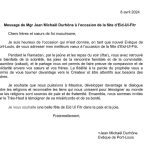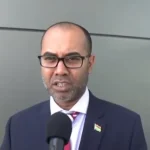*‘A Craze and a Motivation’
The book entitled Ek Janoon ek Tehreek [‘A Craze and a Motivation’], written by Enayat Edun, was launched recently at the Municipality of Port-Louis. Because of sanitary measures, only selected personalities were invited.
Actually, Mr. Edun has already written several books in the Urdu language. In this book, Mr. Edun goes down memory lane by expressing his persistent efforts to learn the Urdu language at degree level. He left for India in the sixties, when Mauritius was still a British colony. At that time, very few people would have dared to embark on such a venture, but the author’s intrinsic motivation was at its height, and the thirst to acquire higher knowledge in this subject pushed him to join the Aligarh Muslim University, which is known to be the cradle of the Urdu language.
It is to be noted that the author had very little knowledge of this language. Being a holder of English and French Literature at GCE Advanced Level, he took a post at Cosmopolitan College as a teacher in these subjects. But the frenzy to learn the Urdu language at higher level was anchored in his mind and he moved forward unflinchingly.
In the sixties, most of foreign travels were done by sea because of the low transport rate. The author deemed fit to travel by this mode of transport. It would take him one month to reach India, via Mombasa. As the author was raised in a nuclear family, it was really very painful for him to be separated from his sibling. But he had to take the challenge. By going through the pages of the book, the reader can have a vivid picture of sea travel. Staying in the cabin, eating meals in the restaurant and enjoying the high visual appeal of the seaview from the deck are described in such a perspicacious way that the reader seems to flow with the scenery.
Mr. Edun reached his destination after a long and exhaustive trip. Fortunately, he had the company of a Mauritian trader, who helped him to reach Aligarh. His description of the university is written in a very impressive language and gives a clear-cut picture of that environment where he had to spend five long years in order to meet his inveterate ambition. Mauritius was not well known to the Indians at that time. His journey started by attending his first Urdu class. His lecturer, Mr. Athar Parwez came to know about Mr. Edun and thought that he would attend elementary Urdu classes. But the author retorted that he has opted for Urdu at the main level and that he has a keen interest to master this language. Mr. Edun had to make reference to the African continent and Madagascar to situate the geographical location of Mauritius. At the university, he met another Mauritian Urdu learner, Mr. Cassam Heerah, who was the former principal of Alleemia College, but who, like Mr. Edun, also wanted to graduate in this language.
According to the author, he received immense help from his lecturers, and for the latter, it was a real pleasure to make him knowledgeable about this language. Besides academic classes, the author learned how to edit articles for magazines. His participation in extracurricular activities happened to enrich his knowledge to a great extent. After completing his BA Urdu, the author describes how the craze to learn this language compelled him to go for a master’s degree in Urdu. His friend, Cassam Heerah, opted for a B.Ed, and after four years of study in Aligarh, he came back home to join the Teachers’ Training College (now the Mauritius Institute of Education (MIE)) as a lecturer in Urdu.
By the end of the sixties, Mr. Edun completed his master’s degree. It is worth reading about his feelings, described in a heart-touching way, when he takes leave of Aligarh University and the indescribable joy to be amongst his relatives after such a long absence.
Back to Mauritius, he followed the instructions given by his lecturers on how to promote the Urdu language in Mauritius. His laudable project to set up the National Urdu Institute was underpinned by the following eminent personalities, namely Abdool Razak Mohamed, Yousuf Mohamed, A. Khatradah, Ahmed Abdoollah, A. R. Joomaye, A. Cureemjee, Dr. Jameel Farid, H. Toorawah and other dignitaries. The author acted as the General Secretary of the institute. It is narrated in the book that many literary activities were carried out at the institute in order to give the Urdu language its “lettres de noblesse”. Urdu classes were run for beginners and at advanced level. The author did not fail to mention about the first Urdu student of the institute, Swabir Goodur.
Later on, Mr. Edun joined the Teachers’ Training College as an Urdu lecturer, and together with Cassam Heerah, they left no stone unturned to promote this language, full of romantic poetry, mysticism and philosophy; an invaluable literature, covering almost all spheres of life. In the end, the author who dedicated himself body and soul to the promotion of this language, handed over his responsibilities to the new generation. The book is worth reading.
Cassam Tupsy
NOTE : Les points de vue exprimés dans cette rubrique ne reflètent pas nécessairement ceux de la rédaction et n’engagent que les auteurs eux-mêmes.


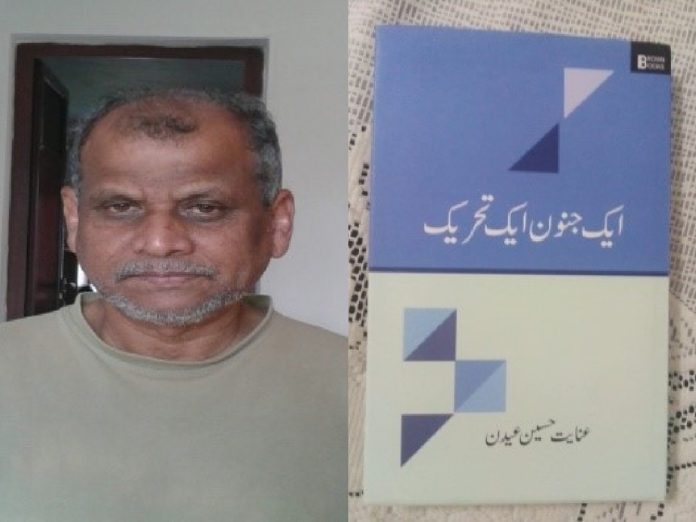

![[Message de l’Eid-Ul-Fitr 2024] Atteindre la piété… Et après ???](https://sundaytimesmauritius.com/wp-content/uploads/2023/10/Bashir-new-218x150.jpg)
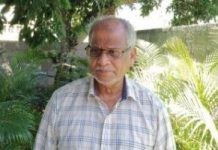
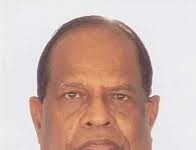
![[Democracy Watch Mauritius] The Rwanda genocide started 7th April 1994, 30 years ago. Has humankind learnt the lesson? Consider Israel’s action in GAZA today!](https://sundaytimesmauritius.com/wp-content/uploads/2024/03/democracy_0-218x150.jpg)

